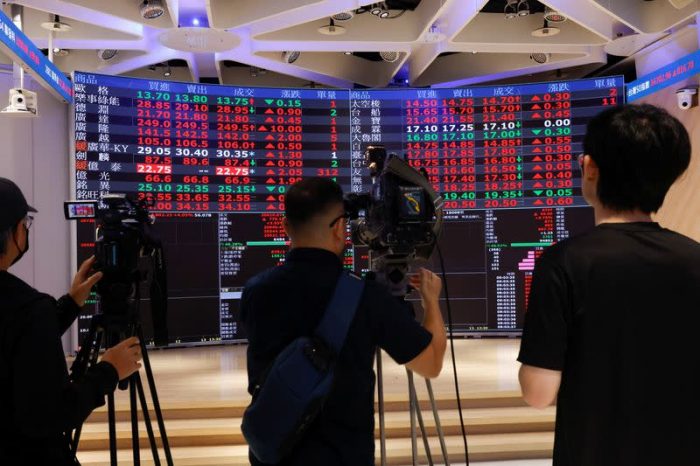Widespread concern that trade policies of US President-elect Donald Trump would harm Asian economies led to a surge of selling of Asian equities in the last quarter of 2024.
Foreign investors bought $26.6 billion worth of Asian equities in 2023, but last year they sold nearly $16 billion worth of equities in Taiwan, South Korea, India, Thailand, Indonesia, Vietnam and the Philippines.
They had invested $14.67 billion in the first three quarters, encouraged by expectations of Federal Reserve easing and regional growth. But they later shifted to accelerated selling, hit by a stronger dollar and higher US yields.
ALSO SEE: Tencent and CATL Shares Sink After Listing by US Defence Dept
Last year, Taiwan led the region with outflows of $12.4 billion, followed by Thailand and Vietnam with net selling of $4.11 billion and $3.63 billion.
And this year the macro backdrop for Asian equities remains challenging, Timothy Moe, an analyst at Goldman Sachs, said.
Early-year market headwinds include mixed economic data, rising US 10-year yields and a stronger dollar, along with potential new US tariffs on Asia-Pacific economies, persistently high economic policy uncertainty and geopolitical risks, Moe added.
Higher returns in other markets also pulled overseas investors away from Asian markets last year, with MSCI Asia Pacific index yielding just 7.23% in 2024, much lower than MSCI World’s 15.73% and MSCI United States’ 23.4%.
Trump, who takes office on January 20, has pledged to implement a 10% tariff on all global imports to the US and a 60% tariff on Chinese goods, measures that are expected to affect other Asian exporters due to integrated supply chains with China.
Although Trump’s threats could eventually be negotiated lower, “banking on less aggressive tariffs at this stage could seem premature,” said Yeap Jun Rong, market strategist at IG, adding: “Inflows may still stay limited for now, until more policy clarity emerges”.
“We believe foreign investors will be selective on the markets and sectors as we envisage more divergence across Asian equity market based on their own domestic policy agenda vs. sensitivity to US monetary and trade policies,” Jason Lui, Head of APAC Equity and Derivative Strategy, BNP Paribas, said.
- Reuters with additional editing by Jim Pollard
























